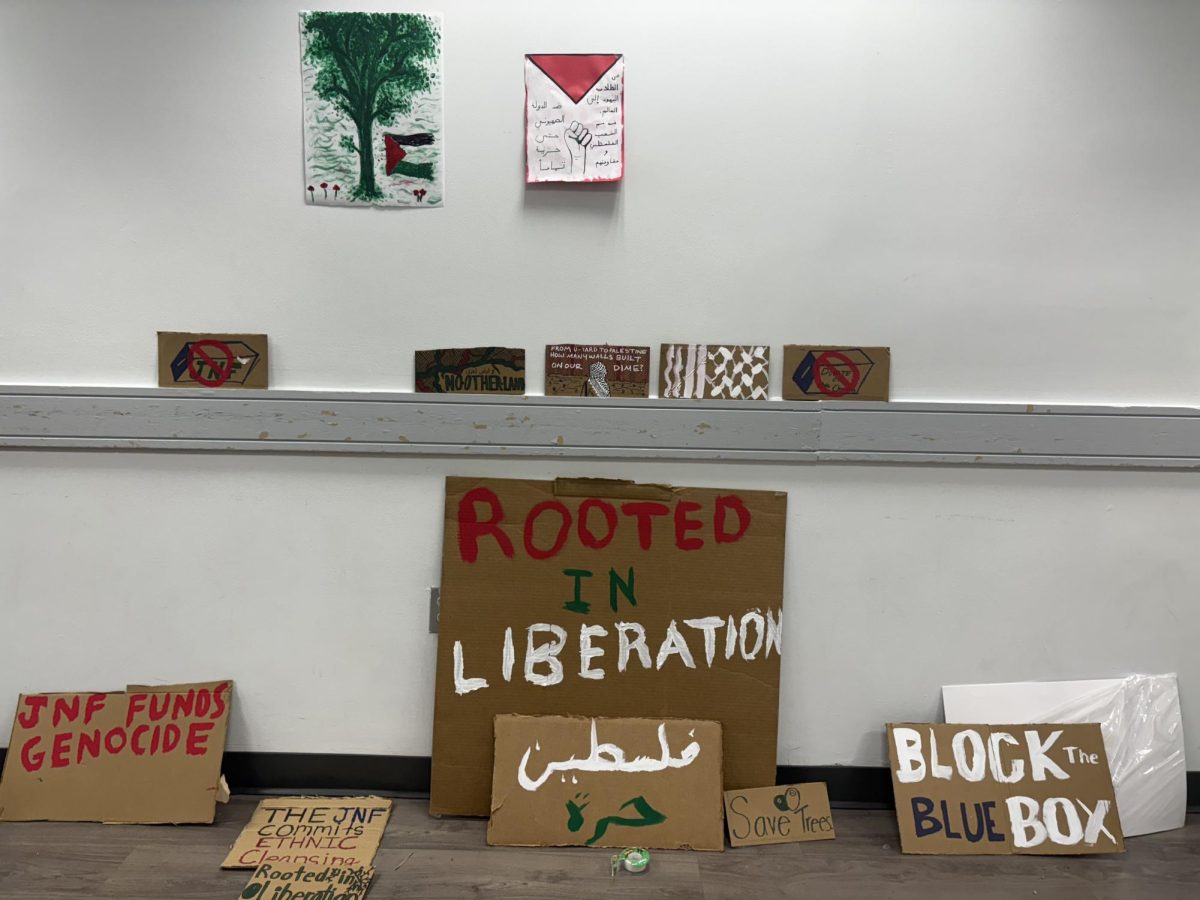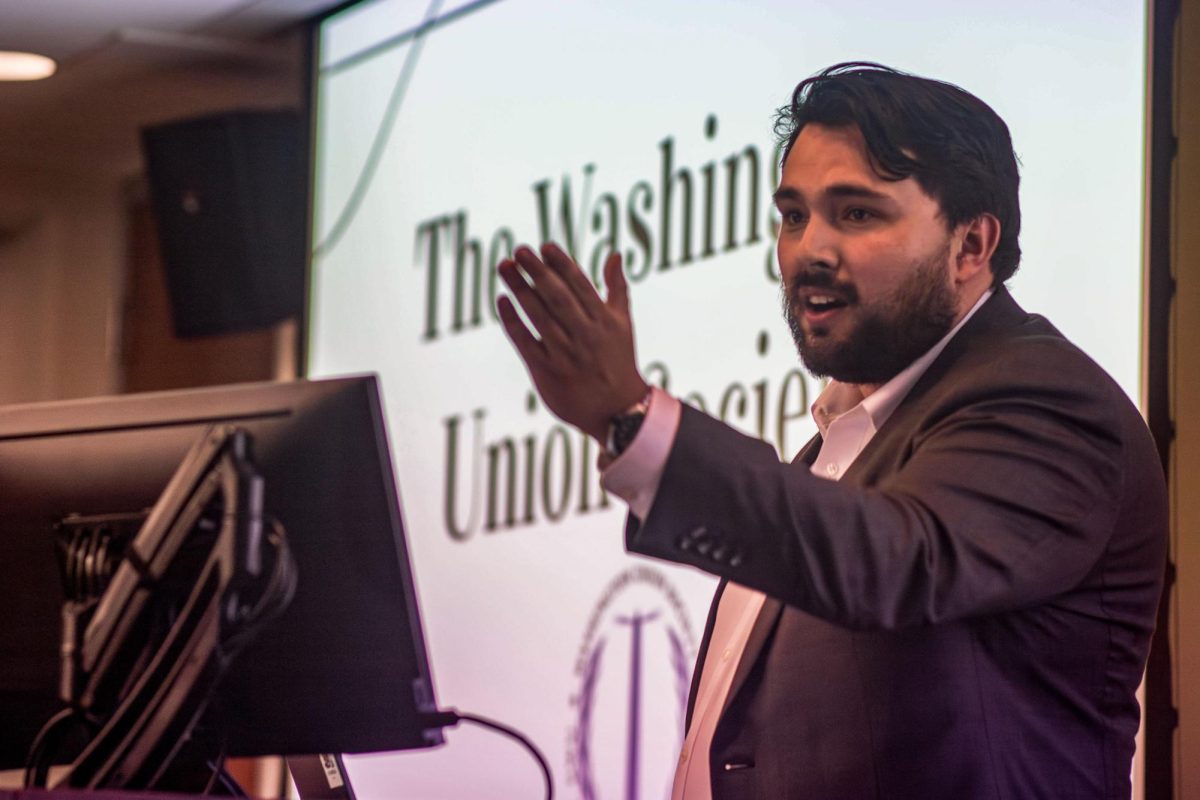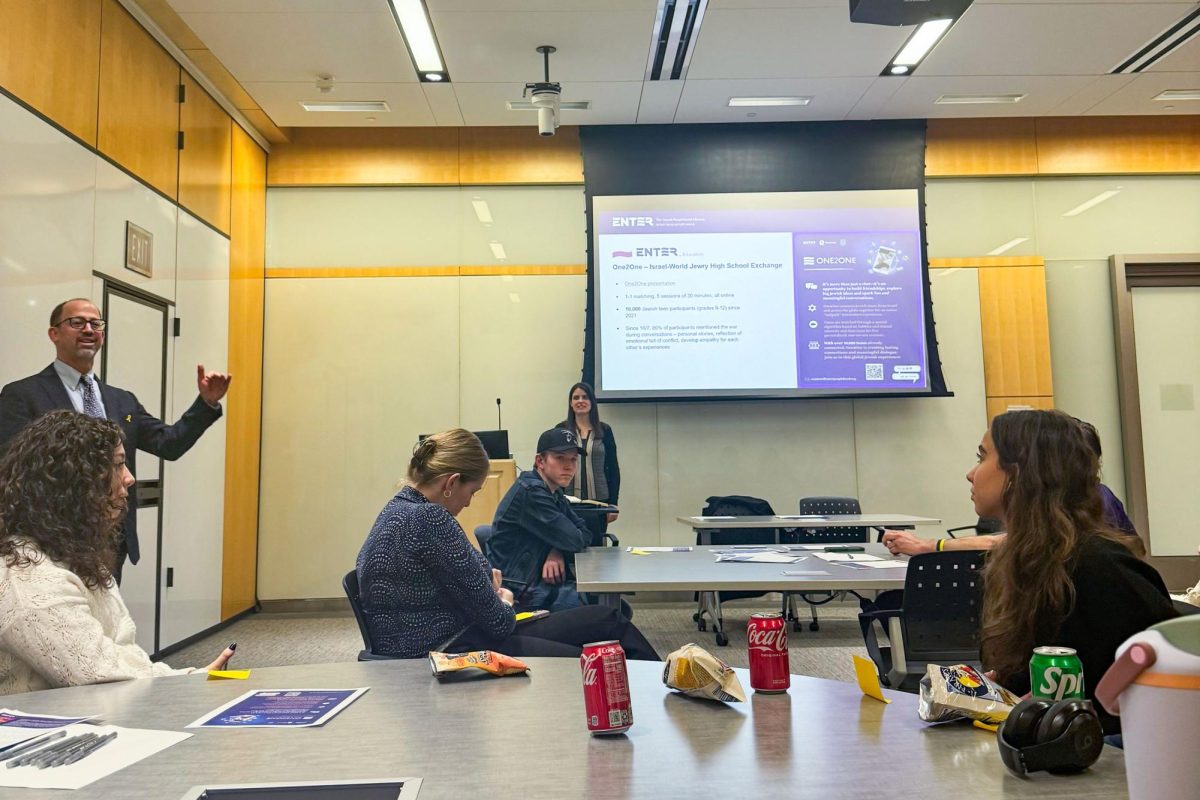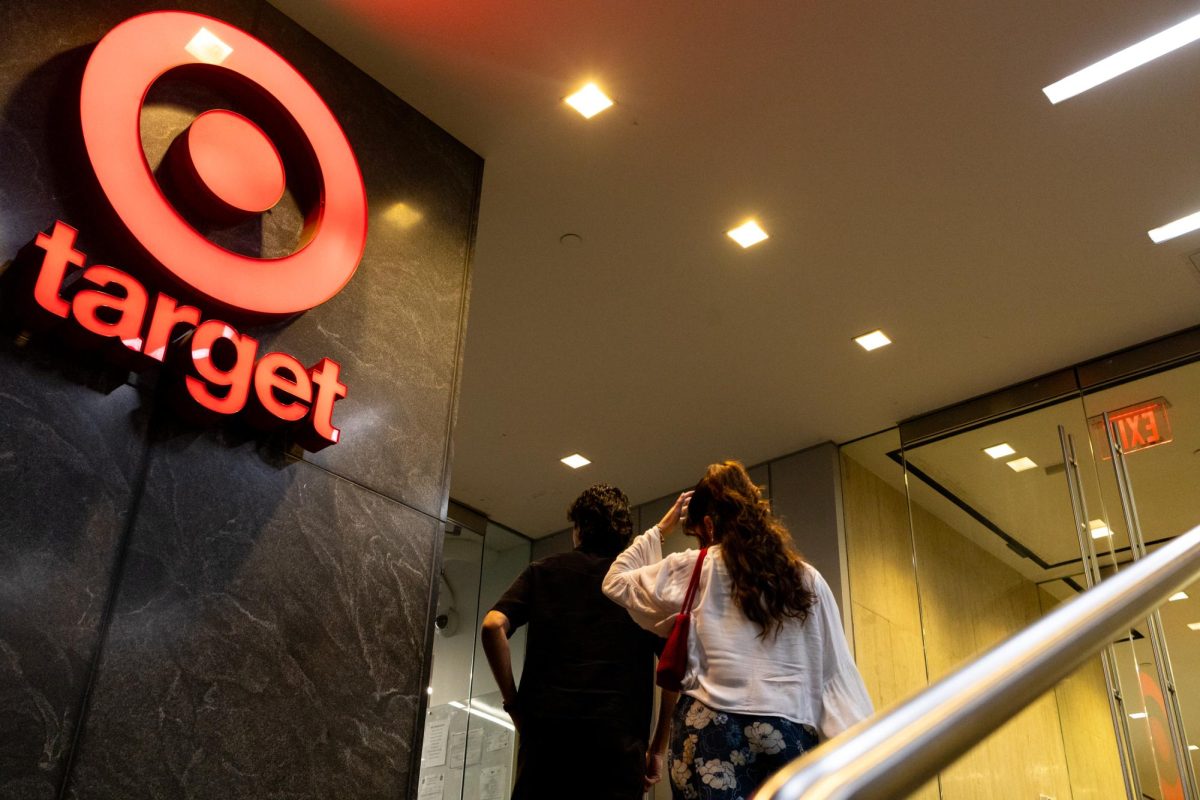Jewish Voice for Peace at GW conducted a teach-ins and zine readings Thursday in the University Student Center along with other local college’s chapters in observance of the Jewish holiday, Tu B’Shvat.
Tu B’Shvat falls on the 15th Hebrew month of Shevat and symbolizes the commencement of the agricultural cycle, where many celebrate by planting trees and hosting a Seder structured around four cups of wine and fruits like figs, olives and grapes. A representative from Georgetown’s chapter of JVP said the different chapters came together to celebrate the holiday while staying committed to their mission of liberation for Palestine.
Former President Joe Biden announced Jan. 15 that Israel and Hamas entered the first stage of a three-phase ceasefire, with plans to release the remaining Israeli hostages held captive by Hamas in exchange for imprisoned Palestinians. President Donald Trump proposed removing and settling over 2 million Palestinians from Gaza in a different region last week, and Israeli Prime Minister Benjamin Netanyahu has since said he is moving forward with the proposal.
A representative from Georgetown JVP said the five schools came together to create a community that allows them to celebrate being Jewish without Zionism. She said they chose for their celebration to be separate from the Jewish National Fund because of its ties to Zionism.
One way the holiday is celebrated by donating to the Jewish National Fund to plant trees. The organization is a United Nations non-governmental organization that works to build and provide a “strong” future for Israel. Trees to plant in Israel can be bought for $18 each.
“We really wanted to honor the Jewish holiday of Tu B’Shvat, but we wanted to do it in a way that really upholds our commitment to Palestinian liberation,” the representative said.
More than a dozen attended the celebration in the student center, making art and signs that said “Rooted in liberation” and “save trees.” Zines about greenwashing and Tu B’Shvat traditions scattered the table, along with posters and art supplies. The groups provided pomegranates, dates, cherries and figs, symbols of the holiday, which attendees ate.
A representative from Organizers for Revolutionary Climate Action gave a presentation at the celebrations that discussed topics like what nature means to attendees and how to be sustainable in everyday life. In response, participants discussed their connection with nature and how they are obligated to minimize actions that diminish the health of the planet.
The ORCA representative, who is also a member of JVP, outlined Israel’s policies that control water access or infrastructure for Palestinians. The representative said Israel “greenwashes” their policies, covering up their colonialism by appealing to advancement and environmentalism. They also said the Jewish National Fund has connections to the Israeli government and plants non-native species like European pines on “ethnically cleared Palestinian villages.”
A representative from American University’s I Beg Your Garden, a community garden student organization, gave a presentation on Palestinian Heirloom Seeds and discussed Viven Sansour, an artist and conservationist, who founded and harvests heirloom seeds in the seed library with Palestinian farming practices, which are threatened to go extinct because of “agribusiness” and land dominance from political powers.
The presenter said the AU Community Garden grew a jadu’i watermelon, originally from Jenin, a city in the West Bank, and harvested it and passed the seeds they collected around to attendees. The speaker explained how colonization is related to agricultural systems, as colonizers take over land by creating areas for agriculture.
A GW JVP representative said the organization asked the University to hold programming in University Yard because they wanted to celebrate in a location surrounded by nature and honor “Shohada Square,” which protesters renamed U-Yard during the almost two-week long pro-Palestinian encampment last May. She added that GW denied their request to use U-Yard because it was made less than two weeks in advance and there are “extra steps” to reserve the space.
To request an outdoor venue space, student groups must submit their request at least 30 days in advance, according to the GW’s space requirements.
“Starting last year, we really started fortifying relationships between JVP, George Washington University, American University, University of Maryland, George Mason University and Georgetown University,” the representative said. “We hosted events together, and then last semester, as JVP GW was suspended, we really relied on our partnered organizations to help sustain our space, and we found a lot of solidarity between one another.”










